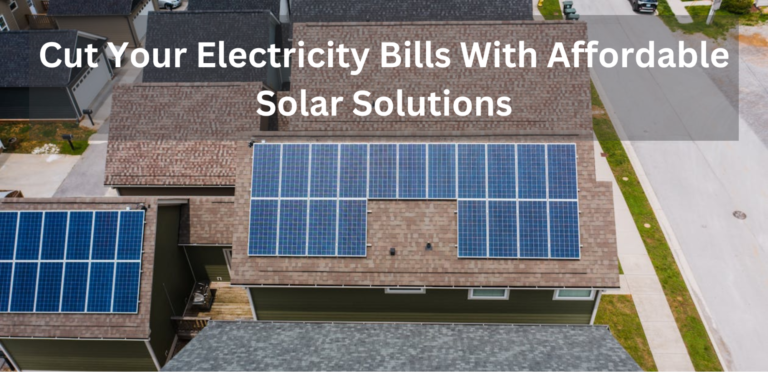In recent years, Pakistan has witnessed a significant surge in interest towards solar energy adoption, driven primarily by increasing electricity costs and a growing awareness of renewable energy. Understanding the costs associated with solar panel installation is crucial for anyone considering this sustainable energy option. This comprehensive guide explores the various factors influencing solar panel prices in Pakistan in 2024, offering insights and practical advice for potential investors and homeowners alike.
Introduction to Solar Panel Prices in Pakistan
Solar panel prices in Pakistan have experienced fluctuations influenced by global market trends, local policies, technological advancements, and consumer demand. As of 2024, the average cost of solar panels varies depending on several key factors.
Factors Affecting Solar Panel Prices
Several factors influence solar panel prices in Pakistan, including:
- Technology and Efficiency: The advancements in solar technology have led to more efficient panels that can produce more electricity per square meter. High-efficiency panels tend to cost more but offer better long-term savings.
- Scale of Installation: Larger installations typically benefit from economies of scale, leading to lower costs per watt. Residential installations may incur higher costs due to smaller scale and customization needs.
- Quality and Brand: The reputation and quality of the solar panel manufacturer play a significant role in pricing. Established brands with a track record of reliability often charge a premium.
- Government Policies and Incentives: Government subsidies, tax credits, and net metering policies can significantly reduce the upfront cost of solar panel installations, making them more affordable for consumers.
Cost Breakdown of Solar Panel Installation in Pakistan
Initial Investment: Upfront Costs
The initial cost of installing solar panels includes the price of the panels themselves, inverters, mounting equipment, and installation labor. In Pakistan, the average cost per watt for solar panels ranges from PKR 100 to PKR 150, depending on the factors mentioned earlier.
Additional Costs: Maintenance and Operational Expenses
While solar panels have minimal ongoing maintenance costs, homeowners should budget for occasional inspections, cleaning, and potential repairs. Additionally, integrating energy storage solutions such as batteries can add to the initial investment but enhance energy independence.
Comparative Analysis of Solar Panel Prices Across Pakistani Cities
Solar panel prices can vary significantly across different cities in Pakistan due to factors like local demand, availability of installers, and infrastructure costs.
Pricing Trends in Major Cities
Cities like Karachi, Lahore, and Islamabad typically have competitive markets with a range of suppliers and installers. Smaller cities may have fewer options, potentially leading to higher installation costs.
Government Initiatives and Their Impact on Solar Panel Prices
Government initiatives and policies play a crucial role in shaping the solar energy landscape in Pakistan.
Net Metering and Feed-in Tariffs
Net metering allows homeowners to sell excess electricity generated by their solar panels back to the grid, effectively reducing payback periods and increasing the return on investment. Feed-in tariffs provide additional financial incentives for solar energy producers, further promoting adoption.
Future Outlook: Predicting Trends in Solar Panel Prices
Looking ahead, the future of solar panel prices in Pakistan appears promising.
Technological Advancements
Continued advancements in solar technology are expected to drive down costs further while improving efficiency and durability.
Market Expansion
As solar energy becomes more mainstream and consumer awareness increases, economies of scale and competition are likely to further reduce prices.
Conclusion
Investing in solar panels in Pakistan presents a viable long-term solution for reducing energy costs and carbon footprint. By understanding the factors influencing solar panel prices, leveraging government incentives, and staying informed about market trends, consumers can make informed decisions that benefit both their finances and the environment.
In conclusion, navigating the landscape of solar panel prices in Pakistan requires careful consideration of various factors. By staying informed about technological advancements, local policies, and market trends, individuals and businesses can capitalize on the benefits of solar energy while contributing to a sustainable future.
FAQs:
- Is solar power a good investment in Pakistan?
Absolutely! Pakistan boasts abundant sunshine, making solar panels a highly effective way to generate clean energy and significantly reduce your electricity bills.
- How much can I save with solar panels in Pakistan?
The amount you save depends on your current electricity usage and the size of your solar system. However, many Pakistani homeowners report savings of 50% or more on their electricity bills.
- What is net metering in Pakistan?
Net metering allows you to earn credits for excess electricity your solar panels generate that feeds back into the national grid. You can then use these credits to offset your electricity consumption during peak hours or on cloudy days.
- How much does a solar panel system cost in Pakistan?
The cost of a solar panel system varies depending on its size and the quality of equipment used. However, government incentives and financing options can make solar power a more accessible option for Pakistani homeowners.
- How do I maintain my solar panel system?
Solar panels require minimal maintenance. Regular cleaning to remove dust and debris is crucial to maintain optimal efficiency.


